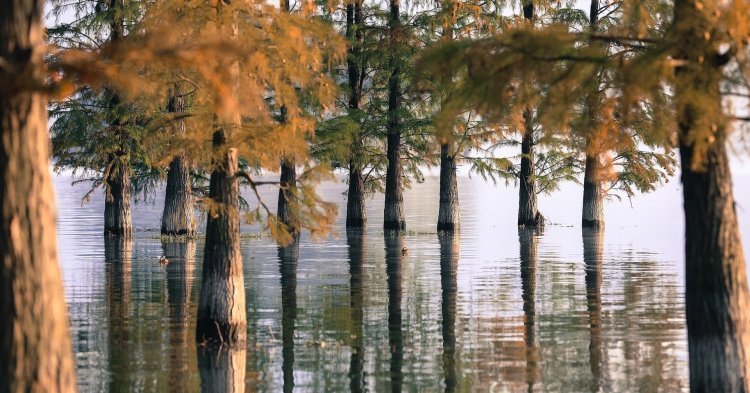COVID-19, a new factor which has largely become a protagonist in the life of every human being, has slowly taken the limelight which, until last year, was largely granted to the climate emergency. In fact, partly due to the forced physical absence of the Fridays for Future students, the topic has disappeared from newspapers and television in recent months. It is well known that the European Commission, chaired by Ursula von der Leyen, has shown itself to be extremely devoted to tackling global warming, and has set itself the goal of making Europe the first continent in the world with zero emissions (perhaps a utopian goal, but potentially achievable, given that the Godsend Article 4 of the TFEU grants the Union shared competence with Member States in various areas, including environment and energy). To this end, the so-called Green Deal has been set as the first aspect to work on over the five-year period from 2019-2024. The European Union’s commitment to fighting global warming was, however, already evident in recent years with a series of legislations; first and foremost, the “Polluter pays principle” which has helped to improve air pollution, unlike what has been happening in North America and Central Asia. The new Commission’s plan is essentially to continue along this path, in an increasingly bold manner.
However, the European Commission, like everyone else, could not foresee an international pandemic crisis like the one we are currently facing. In a situation as such, one might well wonder what will become of this ambitious plan. Will it fail? Will it be reviewed? Have amendments already been prepared? What stage are we at today in our response to the climate emergency?
Nature has taken back cities, and this time, it’s not a cliché. The lowering of smog levels due to the reduced freedom to travel by plane or car is clearly visible, but the imminent risk of businesses gradually reopening would make all of this progress futile. At the end of April, both Frans Timmermans, the European Commissioner for the Climate and number one in the working group on green economy, and President von der Leyen herself, commented on the issue. Although media attention has decreased and the financial means for green energy production will inevitably decline, the Commission does not intend to withdraw the Green Deal. According to Timmermans, the deal should not be considered as a luxury to be neglected when another crisis arises, on the contrary, it is essential for the future of Europe. The European Alliance for a Green Recovery was set up in April to assist the Commission, thanks to the initiative of French MEP Pascal Canfin. The Alliance brings together civil society groups, business associations, trade unions, NGOs and leaders of large companies whose aim is to direct post-crisis coronavirus investments to the development of environmental sustainability measures.
But even though the news brought to us from Brussels is as good as we could have hoped for, the same cannot be said about that brought to us from nation states. The European Commission’s announcement to invest a trillion into the green economy in January had already caused many Member States to express their reluctance to actively participate, rather than encouraging them to focus on what help they could offer. Taking Italy as an example, at the end of last year the European Parliament announced a climate emergency and twelve environment ministers, including the Italian Sergio Costa, signed the aforementioned Canfin initiative. However, even on this occasion, Italy cannot describe itself as an avant-garde country. Although Italian education is among the most valued, and despite the introduction of climate change onto the Italian school curriculum, the scarce funds and the high levels of bureaucracy relegate Italy to the twenty-third ranking for freedom in scientific research. The Institutional Investor Group on Climate Change intervened to jolt nation states into action with a declaration urging governments to ensure that the economic response to the pandemic is coherent with the Paris agreement on climate change. Can the recommendation of such a highly esteemed group be enough to foresee an improvement? One can always hope. But if state funding in the field of research, especially concerning renewable energies, is already running short in Italy as it is in almost half of EU countries, the pandemic will only cause this funding to reduce further.
Similarly, to make matters worse, the COP26 has been inevitably postponed to 2021. It is impossible to imagine today how world leaders will present themselves next year in Glasgow where the conference will be held. What is certain is that every country will still be busy reviving their economy after being hit by the virus. Therefore, the efforts to spend time and money to respond to global warming may not be what climatologists, glaciologists, and the like would have hoped for, especially if you consider the reasons that led to the failure of COP25 in Madrid. At the conference on Spanish soil last year in December, UN Secretary-General Antonio Guterres urged Heads of State to listen up to the multiple voices calling for change, take note of imminent threats that cannot be ignored, and open their minds to science. However, he did so without success. The influential Greta Thunberg was even less fortunate, considered as a persistent irritation in the eyes of conspiracy theorists, oil companies and numerous powerful men. The conclusion of COP25 and the postponement of the discussion on Article 6 which concerned the Paris agreement regulating the finance of emission reductions on the carbon market, was disappointing and worrying, firstly, due to the lack of ambition of the participating countries and secondly, due to the lack of dialogue aimed at convincing polluting countries, such as the United States, China, India, Brazil and Saudi Arabia, that the health of citizens and the protection of nature is more important than economic interests. At the end of 2019, we asked ourselves whether the right conditions were in place to prevent a disaster the following year. Mid-way through 2020, concerns are still growing, and we’ve realised that this reflection has to cover an even longer period of time.
In short, as with any other subject, we can never be too cautious during this time. The Green Deal is certainly a unique project and one can only be confident in its success. However, we cannot afford the lack of action created by the overload of problems within the European Union or, worse still, by the thought of how far away 2050 is. Climate change has never stopped, and it is exactly that which must be pursued, rather than date far off in the future. The nation states can certainly not ignore the pandemic crisis, but, at the same time, they cannot allow themselves to be afraid. Once the virus has been defeated, politics will have to make decisions. It will have to decide whether to repeat what it has always done, with the likelihood (or rather, the danger) of repeating history’s mistakes, or whether to risk and sacrifice a lot by taking this long-awaited step forward in the hope of ensuring a future for younger generations and for those yet to come.



Follow the comments: |
|
